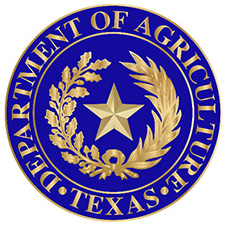Food inflation slows, though still above 10 percent
Food inflation is down for the fourth month in a row, dipping to an annualized rate of 10.4 percent, aided by beef prices that are lower than a year ago, said the Labor Department on Thursday. President Biden said the 0.3 percent increase in food prices during December was the smallest in almost two years.
Largest U.S. winter wheat plantings in seven years
With their 2022 crop fetching the highest season-average price on record, wheat farmers sowed 36.95 million acres of winter wheat for harvest this spring and summer — the largest total in seven years, said the Agriculture Department on Thursday.
The SUSTAINS Act
Congress encourages corporate sponsorship of USDA conservation programs
In the year-end Washington scramble to pass a government funding package, Congress snuck in a concerning new law that helps agribusiness corporations influence federal farm conservation policy. The SUSTAINS Act, first introduced by Republican leader of the House Agriculture Committee Glenn Thompson, allows corporations to give money to the Department of Agriculture to fund conservation programs.
TODAY’S QUICK HITS
Ex-governor headed to D.C.: Nebraska Gov. Jim Pillen, elected with the endorsement of his predecessor, Pete Ricketts, announced on Thursday that he would appoint Ricketts as U.S. senator, replacing the retiring Ben Sasse. (Gov. Pillen)
The drought isn’t over: Thanks to a series of “atmospheric rivers,” California has twice as much snow water equivalent as normal for this time of winter, but meteorologists point out that a wet December 2021 was followed by bone-dry weather for the rest of the rainy season. (Los Angeles Times)
End of emergency allotments: February will be the last month that SNAP recipients in 32 states and the District of Columbia receive the temporary increased benefit that was a response to the pandemic. Eighteen states have already ended the so-called emergency allotments. (USDA)
Building climate resilience: For hundreds of years, farmers have sown maslins, a mix of cereal grains — wheat, barley, rice, millet, rye, emmer, triticale, and more — in the same field to assure a harvest despite the vagaries of weather, which researchers say could be a tactic for adapting to climate change. (Cornell University)
Food aid in question: Aid groups “are bracing for a fraught year of negotiations” over the 2023 farm bill, which will fund USDA programs that deliver food aid overseas, including the McGovern-Dole school food program and Food for Peace. (Devex)











